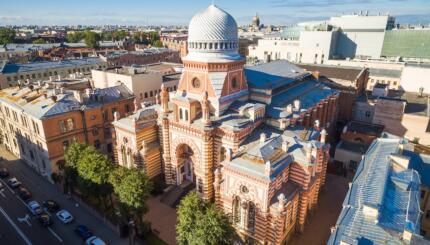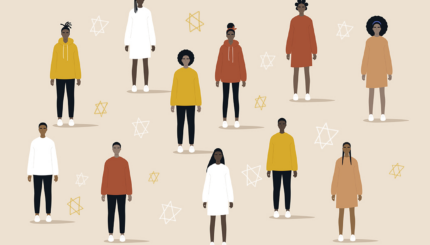This post is the second in my three-part-series on “Becoming Southern and Jewish.”
Over the course of my next two years living and working in the Mississippi Delta, I became more and more comfortable with being Jewish and living in the South. I would answer questions people posed to me, I attended a couple of services at the local synagogue that met once a month, I put some decorations up at home when holidays like rolled around– but it wasn’t until my fourth year living in the Deep South that I received my next big push into feeling Southern and Jewish.
It was 2013. I had finished graduate school, and was determining what my next move would be. I loved my work in the Mississippi Delta but it left me wanting when it came to my personal life. However, I felt as though if I moved to a bigger city I wouldn’t be as fulfilled professionally and would have to start over, when I had just worked exceptionally hard laying down a strong professional footing in the Delta. Moreover, I wanted to be part of a movement and a big player in the change in education that was taking place in the Delta. So, after a lot of deliberation I decided that I would stay in the Delta, but this time I was going to make some substantial changes. Instead of focusing almost entirely on my career I would begin to look at the quality of my life and making sure that I was fulfilled personally and professionally and that also meant grappling more seriously with how I interacted with Judaism.
My new job as a school administrator took me to a different part of the Delta, an hour and a half to the west of my first Mississippi home. It just so happened that there was a synagogue in that town that met every other week, right after I finished work on Fridays. I received an email from the president of the synagogue inviting me to services. It was the push I needed; I went.
I’ll never forget that first service. I showed up early to explore the temple a bit and meet the rabbi.Walking around, I was enraptured by all of the photos of congregations of the past. Artifact after artifact, room by room, I felt the warmth of generations gone by. I am somewhat of history buff and the mini-museum a congregant had created for this synagogue drew me in like a bee to honey.
The service was like nothing I had participated in before. I am from California, where sanctuaries are filled (although if any row stays empty, it’s the first row) and the voices of the choir fill your ears with sweet melodies. This was something totally different. The rabbi stood four feet from us, the handful of congregants that were there from the beginning sat in the first few pews in spots (which I have no doubt they have occupied for longer than I have been alive), and instead of a large choir it was an historic organ providing the service music. There was a dance between the rabbi and each congregant, something more like a dialogue rather than a formal service. It took me a minute to adjust, but it wasn’t long before I fell in love with the service. It was small, intimate, and beautiful.
I felt, for the first time, that I was praying with the rabbi and all the other congregants. I was not a passive observer going through the motion. My voice was a necessity because when the rabbi cued our response, there were only a few of us to produce the response to her call. Most amazingly, there was a discussion of each prayer and moment. We talked about the purpose of certain words and it wasn’t just a sermon but an honest exchange. For the first time in my life I felt like a student at a Shabbat service– and as an educator, this appealed to me even more.
Some congregants joined the service a little late, filling the pews a bit more, and after an hour there was a larger community and yet the intimacy of the service didn’t change. After the service we had a terrific meal that included great discussions and Jewish learning.
By going to this small synagogue, I made the transition from being a Jew living in the South to feeling like I was becoming a Southern Jew and did so with honor, pride, and joy. This was the first time I decided to become an official member of a congregation as an adult, and was an important next step in my Southern and Jewish journey…
Jewish food, holidays, Torah, Shabbat, history, blogs and more in your inbox – sign up now!



